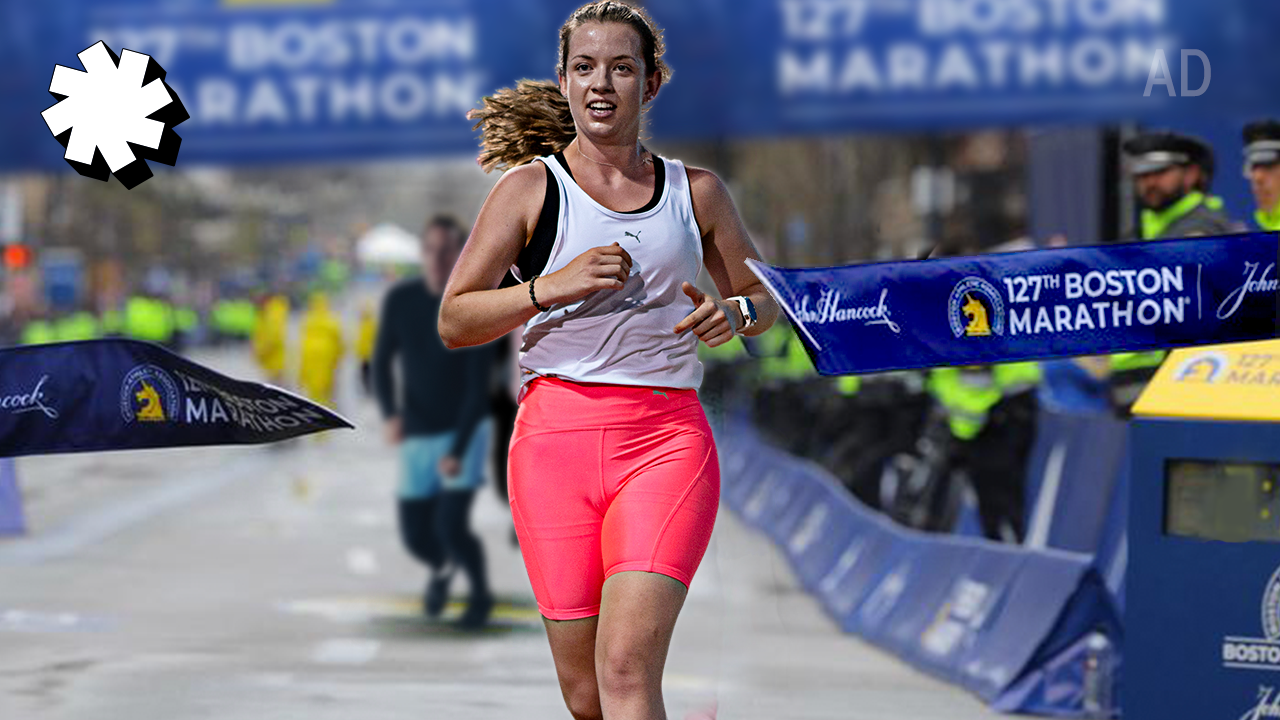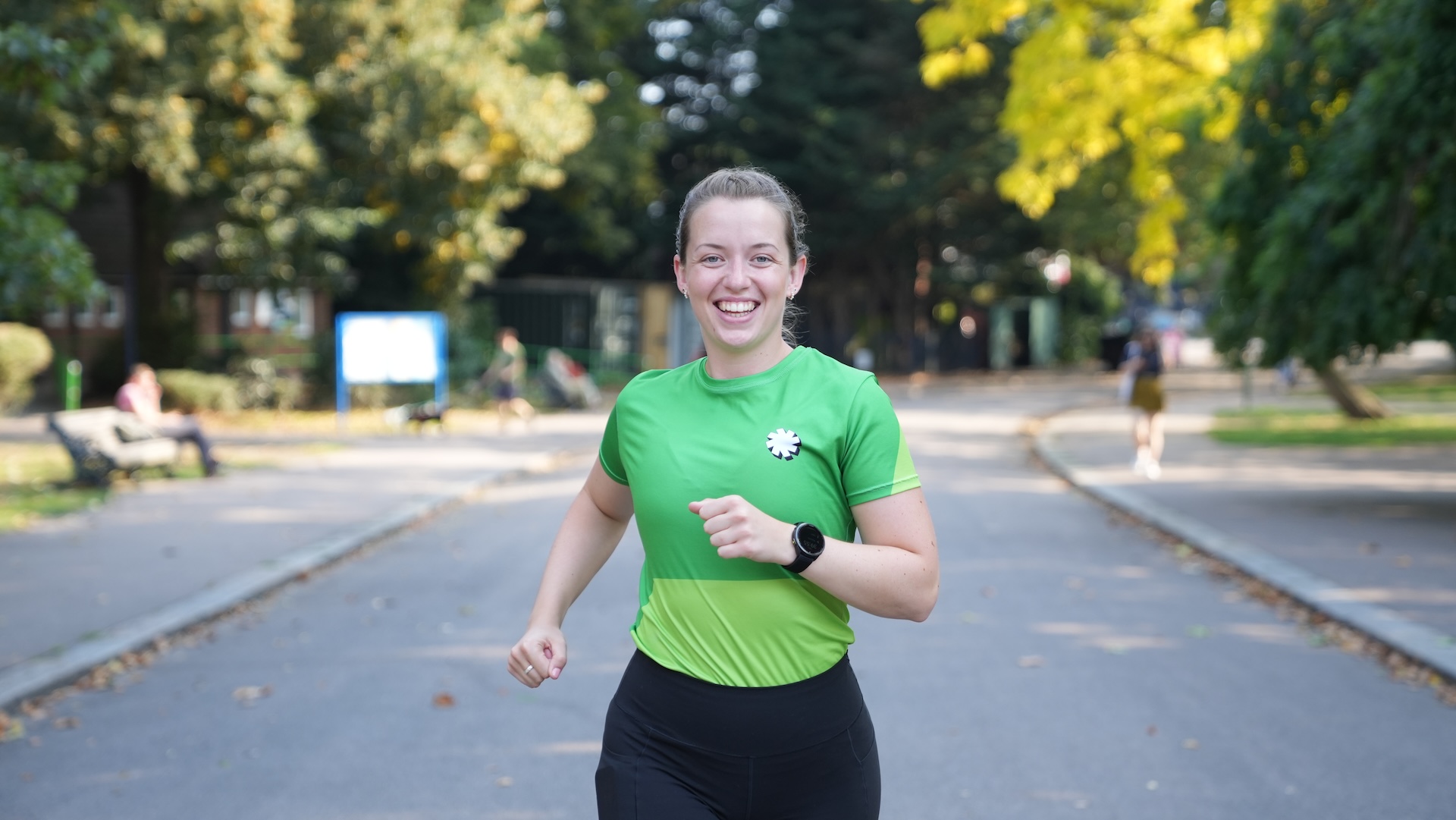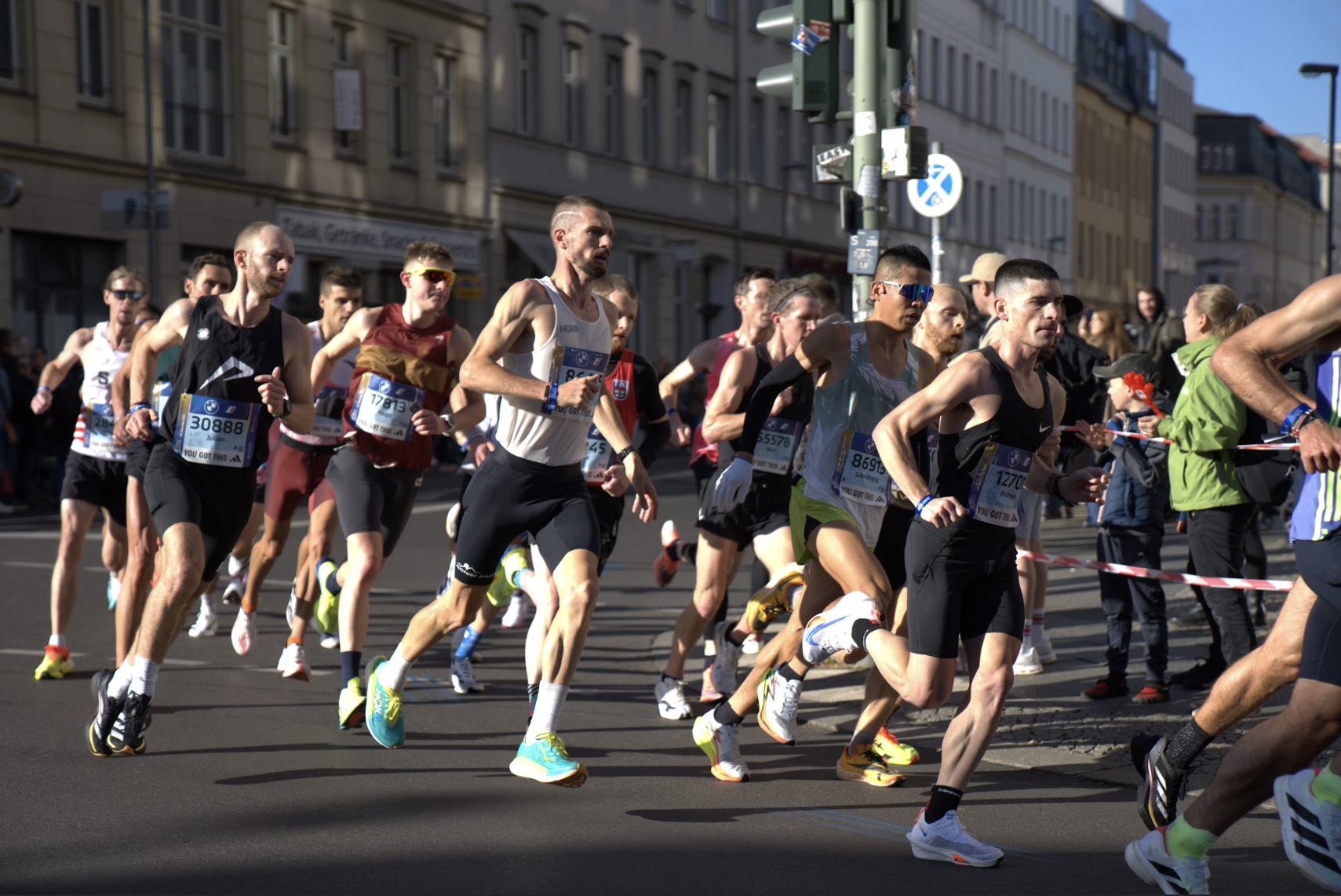Caffeine and Running: Is Caffeine the Ultimate Performance Enhancer for Runners?

Caffeine is one of the most researched topics in sports nutrition, with a huge number of studies confirming the same results: caffeine can improve athletic performance, and in particular, endurance performance.
So how does caffeine work and why and when should runners consider using caffeine?
In this guide, we look at:
- What is caffeine and how does it affect the body?
- How does caffeine help running performance?
- What’s the best format to take caffeine?
- When should runners take caffeine?
- Should you take caffeine during a race?
- Should you take caffeine if you’re sensitive to it?
- Does coffee make you poop?
WHAT IS CAFFEINE & HOW DOES IT AFFECT THE BODY?
Caffeine occurs naturally in certain plants, with coffee and tea the best known sources.
Caffeine is a stimulant and when consumed it directly affects the brain and central nervous system. For most people, it makes them feel more alert and less tired.
Caffeine is absorbed rapidly in the body. It takes 15-30 minutes to notice the effects of caffeine, and for most people the concentration of caffeine in the blood peaks around 45-60 minutes after consuming it.
Research suggests that caffeine blocks the action of adenosine. Adenosine is a chemical produced in the brain that naturally builds up throughout the day, whether we’re working, working out or just chilling out. As the adenosine builds it binds to receptor sites in the brain, and the more they bind, the more tired we feel until it’s time to go to bed – adenosine is kind of our natural sleep regulator. Caffeine is able to bind to those receptor sites in place of the adenosine, and that blocks the feelings of tiredness. The same receptors also influence feelings of pain, so caffeine can help to limit our perception of pain.
Caffeine doesn’t technically give you more energy, but we feel more alert after taking caffeine because we feel less tired. When we consume caffeine the brain also releases certain neurotransmitters like adrenaline, dopamine, norepinephrine, and serotonin, and these make us feel even better.
Caffeine has a half-life of around six hours, so if we had a double-espresso with lunch, which is 100-150mg of caffeine, then we may still have 50-75mg of caffeine in our system at dinner time, meaning we haven’t had the natural build up of adenosine to help us feel tired in the evening.
It’s important to know that all the effects of caffeine are highly individual, and genetic differences can influence how we process coffee – some people are very sensitive to caffeine, others are not and can happily drink many cups a day. It’s not all positives, and there are negative effects of caffeine which can include dizziness, jitters or shaking, restlessness, headaches, anxiety and it can affect sleep.
HOW DOES CAFFEINE HELP RUNNING PERFORMANCE?
There’s been a huge amount of research into the effects of caffeine and exercise, with the most comprehensive results finding that caffeine can enhance performance in longer endurance events like cycling, which is also directly applicable to marathon runners.
As caffeine works directly on tiredness and pain symptoms in the brain, if we take it before or during exercise we feel a reduction in fatigue and discomfort, which in turn helps us to feel more energised.
We can also feel the benefit of better mental clarity – something which can help with decision making (and just generally feeling more positive) when long endurance events get harder. A small release of adrenaline and dopamine can also improve the way we feel. All of these are good things, especially as we get more tired late in a race.
Based on a suggested intake of 3-6mg per kilogram of body weight, adults could look at doses of caffeine in the range of 150-400mg before and during exercise.
As we’ve addressed above, caffeine tolerance and reactions are individual. Just because research says there’s a strong correlation between caffeine and endurance performance doesn’t mean that it works for everyone. If you want to test caffeine, then do so cautiously and gradually build up the amount of caffeine you take based on the results you experience.
WHAT’S THE BEST FORMAT TO TAKE CAFFEINE?
Is a cup of coffee different from caffeine in a gel or chew? What about gum, caffeine pills, strips or energy drinks? (For good examples of these formats, look at PF&H 30 Caffeine Gel, Maurten Gel Caf 100, Revvies and Caffeine Bullet).
The research suggests that it doesn’t matter how you take your caffeine in terms of the ultimate performance benefit, though there is evidence that caffeinated chewing gum and chews appear in the circulation faster than others as it’s absorbed through the mouth (which happens to a much greater extent than when we drink it, where it ends up being processed through the liver). Caffeine gum can also have less impact on the gut for those who are sensitive.
It’s not practical to drink a couple of espressos during a run, so we choose gels, pills, chews and energy drinks when on the move. Many gels and chews have a dose of 100mg of caffeine, so you know exactly how much you’re getting (for reference: a double espresso is around 100-150mg, and a 250ml can of Red Bull is 80mg).
Taking a gel with 100mg of caffeine, plus its 25g or more of carbohydrate is a great way to take on fuel and get the benefits of caffeine.
So the advice here is: choose the format which works best for you because it doesn’t really matter how you consume caffeine for athletic performance.
WHEN SHOULD RUNNERS TAKE CAFFEINE?
As we’ve seen, caffeine takes some time to have an impact. If you want the quickest caffeine hit then chew caffeine gum, otherwise other sources of caffeine (coffee, gels, pills, chews) can take 15-30 minutes for you to feel their effects, around 45 minutes to absorb all the caffeine, and around 60 minutes for a peak of caffeine in the bloodstream, which can then remain high for several hours (remember the six-hour half life of caffeine).
It’s unique to individuals, so this is something you need to test yourself to see how quick you feel the buzz after taking caffeine, but in general, take caffeine 45-60 minutes before you want the full effects to kick in.
You can also take caffeine during a race…
SHOULD RUNNERS TAKE CAFFEINE DURING A RACE?
If you’re running a marathon then taking 100mg of caffeine before you begin may be enough of a boost to last the whole race, though many athletes find a benefit from taking caffeine gels during a longer race, or timing a caffeine dose so that it peaks near the end of the marathon (so taking something an hour before you expect to finish).
Some runners may take up to three lots of caffeine during a marathon, but this is something that you should test out in training. Begin by taking one caffeine gel/chew an hour into a long run. Then if that feels good, try adding a second gel/chew after two hours.
For shorter races like a 5km or 10km, there’s no benefit to taking caffeine during the run, but there is benefit to taking it before, as we’ve seen above. If you’re running a half marathon, then taking caffeine at the start, or soon into the race, may be beneficial for your performance at the end of the race.
SHOULD YOU TAKE CAFFEINE IF YOU’RE SENSITIVE TO IT?
Caffeine tolerance is highly individual. Some people drink many cups of coffee a day, others feel a buzz after a single piece of dark chocolate. So if the science is so strong towards the performance enhancing qualities of caffeine, then what do you do if you’re especially sensitive to it?
If caffeine makes you feel jittery, dizzy, or increases your heart rate, then it’s not something you should take when exercising. You are likely to feel worse by taking caffeine, so you should avoid it.
If you are unsure about how caffeine will affect you then test different doses of caffeine and see if they work for you. You could start with some gels or chews and take one-quarter to begin, then increase that if it feels ok.
Stop running if you feel dizzy or feel negative effects from taking caffeine.
DOES COFFEE MAKE YOU POOP?
Saving one of the most common questions to last, as this is a reason that many runners have a coffee on the morning of a run or race… But what does science say about caffeine, coffee and pooping?
As a stimulant, caffeine doesn’t just affect the brain, and it can impact your gut as well. There’s some research that suggests certain poop-inducing hormones are released when we drink coffee, or that coffee can ‘stimulate colon motility’, but it’s just as likely that the habit of a morning coffee is what kicks your colon into action, and not the caffeine itself. There is no known single reason why coffee might make you want to poop, but if it works for you and helps you go before a run, then keep on drinking coffee!
As for whether taking caffeine in a race might cause you to poop… Maybe that’s physiological, maybe it’s psychological, but if that’s a concern for you then be sure to practise with caffeine in training (and run close to a toilet).
***
Do you use caffeine in your training? Have you found benefits to using it?



























Running News
Ingebrigtsen Stars at World Athletics Indoor Championships 2025 – Plus All The Winners!
Sam Ruthe Is First 15-Year-Old To Run A Four-Minute Mile!
Eliud Kipchoge Will Run The 2025 Sydney Marathon!